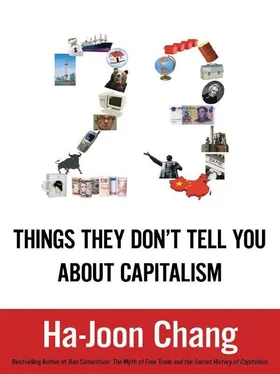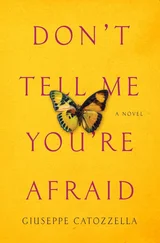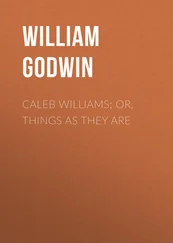Some Americans call their dollar bills ‘dead presidents’, or ‘dead prez’. Not quite accurately. They are all dead all right, but not all the politicians whose portraits adorn the dollar bills are former presidents of the US.
Benjamin Franklin – who features on the best-known paper money in human history, the $100 bill – never was president. However, he could well have been. He was the oldest of the Founding Fathers and arguably the most revered politician of the new-born country. Although he was too old and George Washington’s political stature too great for him to run for the first presidency in 1789, Franklin was the only person who could possibly have challenged Washington for the job.
The real surprise in the pantheon of presidents on the greenback is Alexander Hamilton, who features on the $10 bill. Like Franklin, Hamilton was never a president of the US. But unlike Franklin, whose life story has become American legend, he was, well, not Franklin. Hamilton was a mere Treasury Secretary, even though he was the very first one. What is he doing among the presidents?
Hamilton is there because, unbeknown to most Americans today, he is the architect of the modern American economic system. Two years after becoming Treasury Secretary in 1789 at the outrageously young age of thirty-three, Hamilton submitted to the Congress the Report on the Subject of Manufactures , where he set out the economic development strategy for his young country. In the report, he argued that ‘industries in their infancy’, like the American ones, need to be protected and nurtured by government before they can stand on their own feet. Hamilton’s report was not just about trade protectionism – he also argued for public investment in infrastructure (such as canals), development of the banking system, promotion of a government bond market – but protectionism was at the heart of his strategy. Given his views, were Hamilton finance minister of a developing country today, he would have been heavily criticized by the US Treasury Department for his heresy. His country might even have been refused a loan from the IMF and the World Bank.
The interesting thing, however, is that Hamilton was not alone in this. All the other ‘dead presidents’ would have met with the same disapproval from the US Treasury, the IMF, the World Bank and other defenders of the free-market faith today.
On the $1 bill is the first president, George Washington. At his inauguration ceremony, he insisted on wearing American clothes – specially woven in Connecticut for the occasion – rather than higher-quality British ones. Today, this would have been a violation of the proposed WTO rule on transparency in government procurement. And let’s not forget that Washington was the one who appointed Hamilton as Treasury Secretary, and in full knowledge of what his view on economic policy was – Hamilton was Washington’s aide-de-camp during the American War of Independence and his closest political ally after that.
On the $5 bill, we have Abraham Lincoln, a well-known protectionist, who during the Civil War raised tariffs to their highest level ever. [22] On Lincoln’s protectionist views, see my earlier book Kicking Away the Ladder (Anthem Press, London, 2002), pp. 27–8 and the references thereof.
On the $50 bill, we have Ulysses Grant, the Civil War hero-turned president. In defiance of the British pressure on the USA to adopt free trade, he once remarked that ‘within 200 years, when America has gotten out of protection all that it can offer, it too will adopt free trade’.
Benjamin Franklin did not share Hamilton’s infant industry doctrine, but he insisted on high tariff protection for another reason. At the time, the existence of almost-free land in the US made it necessary for American manufacturers to offer wages around four times higher than the European average, as otherwise the workers would have run away to set up farms (this was no idle threat, given that many of them were farmers in their previous lives) ( see Thing 10 ). Therefore, Franklin argued, the American manufacturers could not survive unless they were protected from low-wage competition – or what is known as ‘social dumping’ today – from Europe. This is exactly the logic that Ross Perot, the billionaire-turned-politician, used in order to oppose the NAFTA (North American Free Trade Agreement) in the 1992 presidential election campaign – a logic that 18.9 per cent of the American voters were happy to endorse.
But surely, you may say, Thomas Jefferson (on the rarely seen $2 bill) and Andrew Jackson (on the $20 bill), the patron saints of American free-market capitalism, would have passed the ‘US Treasury Test’?
Thomas Jefferson may have been against Hamilton’s protectionism but, unlike Hamilton, who supported the patent system, he argued strongly against patents. Jefferson believed that ideas are ‘like air’ and therefore should not be owned by anyone. Given the emphasis that most of today’s free-market economists put on the protection of patents and other intellectual property rights, his views would have gone down like a lead balloon among them.
Then how about Andrew Jackson, that protector of the ‘common man’ and fiscal conservative (he paid off all federal government debts for the first time in US history)? Unfortunately for his fans, even he would not pass the test. Under Jackson, average industrial tariffs were in the region of 35–40 per cent. He was also notoriously anti-foreign. When in 1836 he cancelled the licence for the semi-public (second) Bank of the USA (it was 20 per cent owned by the US federal government), one of the main excuses was that it was ‘too much’ owned by foreign (mainly British) investors. And how much was too much? Only 30 per cent. If some developing country president today cancelled the licence for a bank because it was 30 per cent owned by the Americans, it would send the US Treasury into a fit.
So there we go. Every day, tens of millions of Americans go through the day paying for their taxis and buying their sandwiches with a Hamilton or a Lincoln, getting their change with Washingtons, not realizing that these revered politicians are nasty protectionists that most of their country’s news media, conservative and liberal alike, love to lambast. New York bankers and Chicago university professors tut-tut through articles criticizing the anti-foreign antics of Hugo Chavez, the Venezuelan president, in copies of the Wall Street Journal bought with an Andrew Jackson, without realizing that he was far more anti-foreign than Chavez.
The dead presidents don’t talk. But if they could, they would tell Americans and the rest of the world how the policies that their successors promote today are the exact opposite of what they used in order to transform a second-rate agrarian economy dependent on slave labour into the world’s greatest industrial power.
Do as I say, not as I did
When reminded of the protectionist past of the US, free-market economists usually retort that the country succeeded despite, rather than because of, protectionism. They say that the country was destined to grow fast anyway, because it had been exceptionally well endowed with natural resources and received a lot of highly motivated and hard-working immigrants. It is also said that the country’s large internal market somewhat mitigated the negative effects of protectionism, by allowing a degree of competition among domestic firms.
But the problem with this response is that, dramatic as it may be, the US is not the only country that has succeeded with policies that go against the free-market doctrine. In fact, as I shall elaborate below, most of today’s rich countries have succeeded with such policies. [23] This story is told in greater detail in my earlier books: Kicking Away the Ladder is a heavily referenced and annotated academic – but by no means difficult-to-read – monograph, focused particularly on trade policy; Bad Samaritans (Random House, London, 2007, and Bloomsbury USA, New York, 2008) covers a broader range of policy areas and is written in a more user-friendly way.
And, when they are countries with very different conditions, it is not possible to say that they all shared some special conditions that cancelled out the negative impacts of protectionism and other ‘wrong’ policies. The US may have benefited from a large domestic market, but then how about tiny Finland or Denmark? If you think the US benefited from abundance of natural resources, how do you explain the success of countries such as Korea and Switzerland that had virtually no natural resources to speak of? If immigration was a positive factor for the US, how about all those other countries – from Germany to Taiwan – that lost some of their best people to the US and other New World countries? The ‘special conditions’ argument simply does not work.
Читать дальше






![Ally Carter - [Gallagher Girls 01] I'd Tell You I Love You But Then I'd Have to Kill You](/books/262179/ally-carter-gallagher-girls-01-i-d-tell-you-i-lo-thumb.webp)





